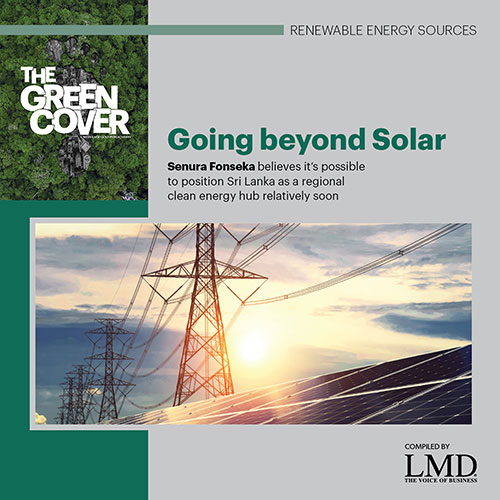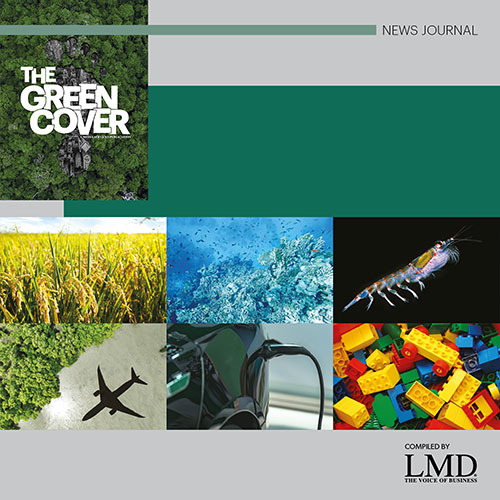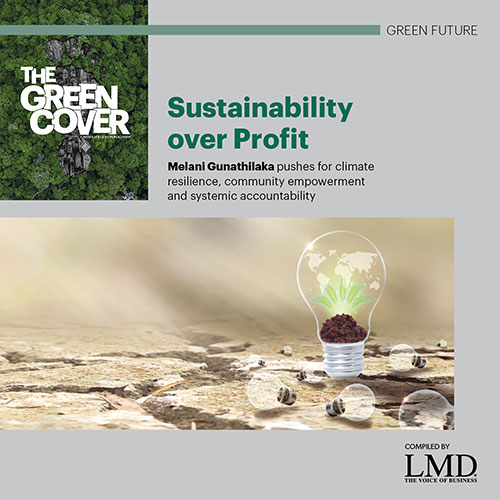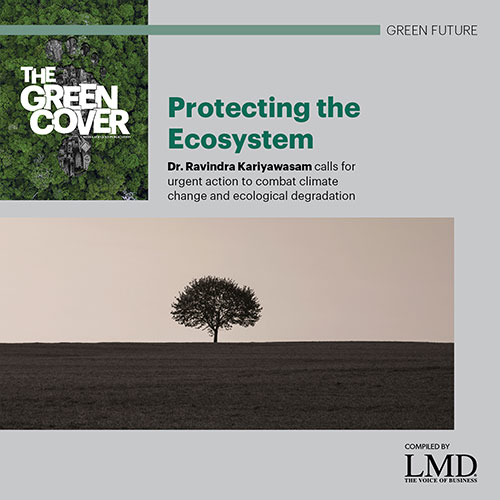SUSTAINING SRI LANKA’S RESILIENCE
Sustainable Way Forward

It is my privilege and pleasure to contribute an introduction to this edition of The Green Cover published by Sri Lanka’s premier business magazine – LMD.
As we experience an acute national crisis, almost everyone’s attention is (understandably) focussed on resolving immediate short-term issues. Nevertheless, I believe resilient Sri Lanka will emerge from this crucible stronger and more united than ever.
Sri Lanka’s socioeconomic fundamentals are still sound and our social capital is intact. We need to return to the principles of good governance and sustainability to recover quickly. In this context, LMD’s focus on opportunities and prospects for medium to long-term sustainability is both inspiring and encouraging.
The contributions in this edition cover a wide range of key topics. They need to be addressed holistically. Such an integrative, comprehensive and practical framework exists already, in the form of The Sustainable Sri Lanka 2030 Vision and Strategic Path report submitted in 2019 to the president Maithripala Sirisena by the Presidential Expert Committee (PEC).
Included in the PEC report were road maps on how to achieve a thriving and dynamic economy, providing a good quality of life that is resource efficient, stable and resilient to shocks, while respecting critical environmental and social sustainability constraints.
It outlined the path to a green environment that builds on Sri Lankan’s traditional respect for nature and keeps resource use within sustainable capacities; and a society that facilitates fulfilling the basic needs of all people while encouraging peace, harmony, reconciliation, inclusion, social justice and security.
The report will help implement the sustainable development goals (SDGs), a metric against which progress may be assessed and prioritised to meet Sri Lanka’s needs.
Sri Lanka’s country profile and status, key issues and opportunities relating to sustainable development, future priorities and targets, and new initiatives and options to achieve ambitious goals by 2030 – by empowering the people and providing guidance to the government, as well as civil society and the business community – are also set out therein.
Its science based findings are essentially robust, irrespective of the bias of the reader. It will continue to provide strategic guidance to all future governments.
Economic, social and environmental dimensions of the sustainable development triangle are harmonised by the report’s core framework, which explains the balanced inclusive green growth (BIGG) path that will facilitate the national transition to Sustainable Sri Lanka 2030.
But to achieve this vision, we will need to transform our values, mindsets, institutions, behaviours, processes, methods, tools, technologies, projects, policies and governance.
The BIGG process follows the Sri Lankan tradition of the middle path, working towards a people oriented and open socioeconomic system, which is based on democratic and pluralistic institutions; is able to protect our ethical values, heritage and environment; and is built on respect for freedom, justice, equal opportunities and human rights.
Inspired by the ennobling elements of our rich past, all major stakeholder groups (government, private sector and civil society) need to cooperate effectively within this framework.
We must provide a decent quality of life for all, especially the poor and disadvantaged, while providing basic services. This is in line with the spirit of the SDG and UN 2030 Agenda, which aims to “leave no one behind.”
Beyond those fundamental goals, we also aspire to apply the latest knowledge, methods and technologies, which can help Sri Lanka achieve more advanced targets in every area of sustainable development.
Despite our present predicament, I am confident that Sri Lanka’s social capital and resilience will enable us to revive like the mythical phoenix, just as we did after decades of internal civil conflict, and external disasters like the 2004 Asian tsunami and COVID-19.
“We will need to transform our values, mindsets, institutions, behaviours, processes, methods, tools, technologies, projects, policies and governance






